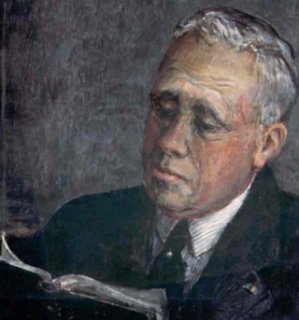Sufjan Stevens on Total Depravity
 Sometimes the deepest theological concepts are not grasped through rigorous study or deep thought. Often, truths about God, his world, and our place in it are best communicated not through the scholar's pen, but rather through the creation of the artist. It is no wonder that in the middle ages, along with the accomplishments of scholastic philosophy and theology, the medieval cathedrals used the beauty of stained glass to communicate the events of redemptive history to the uneducated masses.
Sometimes the deepest theological concepts are not grasped through rigorous study or deep thought. Often, truths about God, his world, and our place in it are best communicated not through the scholar's pen, but rather through the creation of the artist. It is no wonder that in the middle ages, along with the accomplishments of scholastic philosophy and theology, the medieval cathedrals used the beauty of stained glass to communicate the events of redemptive history to the uneducated masses.While the Church does not retain a monopoly on the arts in our modern age as it has in ages past, there are still plenty of artists who are using their creative abilities to glorify God and to reveal the beauty inherent in our fallen world. One such artists that I have been enjoying recently is singer/songwritter Sufjan Stevens. Stevens' music is not explicitly "Christian" (i.e. you won't find his albums in your local Christian bookstore or see him on a CCM label). He weaves commentary on faith in with themes of family, suffering, and loss. I have been soaking myself in his music over the past couple of days and I am overcome with the beauty of his music and themes.
In the song John Wayne Gacy, Jr. from his latest studio album, Illinois, Stevens deals with the theme of human sinfulness. The song chronicles the childhood of the famous serial killer from Chicago who was convicted of raping and murdering 33 boys and young men, many of whose bodies were found under the crawl space in his home. After singing of his broken family and the apparent normality of Gacy's life and the horrors of his crimes, Stevens ends the song with some self reflection:
And in my best behavior
I am really just like him
Look beneath the floor boards
For the secrets I have hid
These few words combined with a Stevens' beautiful, yet mournful melody do more to express the depths of human rebellion against God than any systematic theology ever could. Once the final chord is struck, there is no escaping the truth that the most horrific of atrocities that men commit are no worse than the sin that lies deeply rooted in each one of us. Through the beauty of a song, Sufjan Stevens is able to present us with our sin and make us crave ever more deeply the presence of our Savior than any scholar could hope to.




